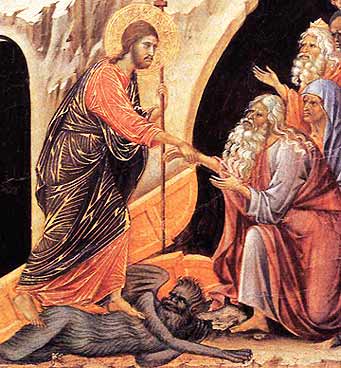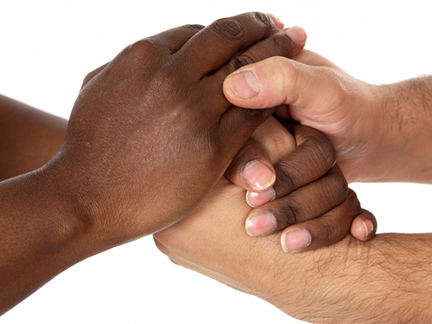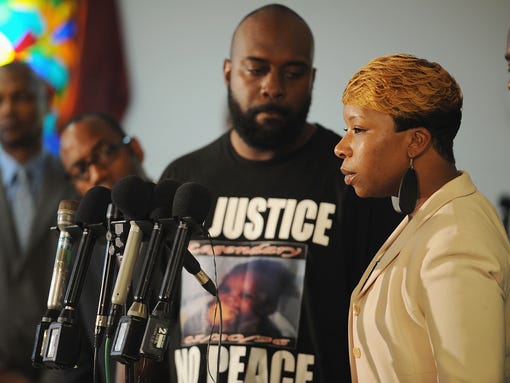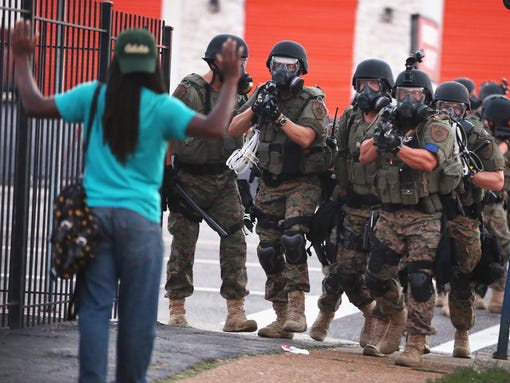No, this is not a blog post about a new horror movie. If that's what you were expecting, I'm sorry to disappoint you (although I feel like "Demons in America" would make a good title for a horror-comedy film.)
No, I'm talking about real demons in real life. In our "enlightened" culture this topic does not come up too often, at least not in meaningful ways. On the one hand, with the overall decline of organized religion and the growth of science and modern empiricism, one would expect Americans to completely discount the concept of demons as beings that truly exist. However, interestingly enough, a nationally representative
study done by the Baylor Department of Sociology found a couple years ago that 67% of Americans either "absolutely" or "probably" believe in demons. Another
survey found that 57% of Americans believe a person can become "possessed by demons."
Now, much of this belief is probably more influenced by modern horror films than by any biblical understanding. Such a belief is likely comparable to how many people also believe in ghosts or other evil powers. However, the stats get even more interesting when we look at American
Christians in particular.
According to a
study done by the Barna Group nearly 60% of American Christians do not really believe that Satan is a "living being," but merely believe that Satan is just a "symbol of evil." Confusingly, though, 64% of American Christians stated they believe a person can come "under the influence" of spiritual forces such as demons.
This apparent inconsistency seems to speak of the particular social situation of American Christians. We follow a book that plainly declares demons are real and claims demons oppress and possess people and interfere with human affairs. However, to actually believe there are real spiritual creatures out there causing havoc in the world does not seem to line up with our scientific, modern worldview. Therefore, most Christians probably opt for agreeing that there are "spiritual" forces out there, but stop short of admitting these forces are actual creatures. Maybe they're just symbolic.
Overall, I find that most people I encounter don't operate with a sense that demons are real and active in the world, at least not on a daily basis. As one of my former professors used to joke, "We don't believe in demons in America because they can't get past customs." For most Americans, even those who claim to believe in spiritual forces, we don't go around expecting to encounter demons around us.
I suspect again that this is largely due to Hollywood. We've been tricked into thinking that demons are grotesque creatures who manifest themselves in horrendous, obvious ways. If a person is possessed, we expect them to have their head twist in a circle or their mouth to elongate into a gaping maw filled with razor sharp teeth. Those are our images of demon possession. And if that is what we expect, of course we will never encounter demons in America.
At the same time, there are many Americans who simply dismiss the concept of demons as "superstitious." Satan and demons are merely symbols for evil, mental illness, human temptations, etc. After all, we are a scientific society. We know there is no such thing as supernatural beings. Everything in the universe has a rational explanation.
But I do believe there are demons out there. I do believe that unseen forces seek to destroy humans and create chaos. Why do I believe this? Because it seems Jesus did. Even if we chalk up many of the "demon possessed" whom Jesus healed to people afflicted by mental illness or epilepsy, I still can't discount how Jesus operated His ministry with the belief that Satan was real and that He was in fact battling unseen forces. Furthermore, my wife and I have had too many experiences in our lives that demonstrate to us that there is more to the world than what I can see with my eyes or that I can study with scientific equipment.
But, if demons are real, what do they look like in America? For one, I guarantee they are not parading around in the clothes of Hollywood. As CS Lewis pointed out in
The Screwtape Letters, a lack of belief in demons can be just as unhealthy as an unwarranted fear of demons. We as Americans tend to fall into the trap of ignorance and lack of belief. And, if this is unhealthy, then why would demons try to make themselves known? If they can keep their work hidden from our blind eyes, then it makes sense they would keep a low profile.
Which brings me to my main point. What does "demon possession" look like in modern America? I don't think it can be seen by heads twisting or fangs growing. I don't even think it can often be noticed by a person's voice becoming deep and gravelly. Rather, I think one of the key markers of demonic activity in America is irrational self-destruction. When a person or group seems to march toward their own demise and does so against all sense of reason and logic, I think many times there is probably demonic influence.
For instance, a former professor of mine once told the story of a woman seeking counseling from him while he was a pastor. She had done some horrible things in her past, things that people should regret. At this stage of the counseling, he wanted her to move on past describing her sins. However, she kept insisting on telling every grisly detail and almost seemed to delight in the retelling. Even when he kept telling her to stop she kept persisting. Finally, when he stood up to walk away, she grabbed his arm as if she wanted to force him to stay and listen to her boast about her evil.
It is that kind of irrational behavior that seems to be indicative of demonic activity here in the US. Now, let me be clear, I DO NOT want to ignore mental illness or modern medicinal science. These are both necessary fields of study. Those diagnosed with mental illnesses should be treated or medicated as needed. However, when a person with a mental illness engages in a mass shooting, I can't help but think that demons were present as well. After all, just the mental illness itself does not seem to be a full explanation. Many people with the same mental illness don't turn violent or commit murderous atrocities.
When people choose the path of self-destruction, this is anti-creational activity, and is likely the work of those who oppose the Creator. Furthermore, pursuing this path while ignoring any rational thought also seems to be indicative. When people take an action that is clearly absurd and leaves us scratching our heads when we step back from the situation, it should be a clue to us.
Demons may be at work when an institution continues to oppress a minority group, even though every sign indicates it does so to its detriment. Or when a man makes up ridiculous rumors to oust a faithful pastor, even though he knows it will cause a church split or church death. Or when a woman persists in her drug use and even brags about the addiction, even though she knows it is wrong and it will kill her. When a person finds themselves hating or being envious of a friend with no clear reason; the feelings just seem to appear "out of nowhere."
The longer I live, the more situations I see that go beyond rational explanation. We can try to offer as many scientific or psychological reasonings as we want, but in the end, there is too much I see that cannot be explained away. There are many cases when it appears there is an unseen force gently prodding individuals and institutions toward their own demise.

Again, let me reiterate, it is foolish for us to go on witch-hunts or to see Satan hiding behind every bush and corner! There are many things that CAN be explained by science and psychology. Furthermore, identifying evil is rarely an easy task. As NT Wright has stated, "evil is nameless, and slimy, and formless and seeps in other places [we do not expect.]" The moment we try to label something as "demonic" or the work of Satan is often the moment that evil jumps out from a different direction completely or even rears its head in us.
In conclusion, I don't advocate forming exorcism teams to seek out and destroy demons in your community. Evil is slippery and such efforts often further the cause of evil by attacking the innocent. However, we should not be naive and think that we live in a demon-free world. Demons are real and present, and they are at work. And, having seen the effect of these forces in my own life, in my community, and in my church, this realization prompts me to turn all the more to God in prayer. As I find in the example of Jesus, the only way to push back the darkness in lives and institutions around us is to "bind the strong man" (Mk. 3:27) through prayer and reliance on the power of the Holy Spirit. If evil does exist, and if it seeks to undo God's creation, then the people of God must join together in unity to pray for God to show up as our warrior and King who has defeated evil on the cross and who is the rightful King of this world.
"This is My Father's world
oh let me ne'er forget
that though the wrong seems oft so strong
God is the Ruler yet!"
 My theology of fasting has been greatly shaped by the work of Scot
McKnight. I really began to develop a deeper understanding of this
ancient Christian practice when reading his book on fasting from The Ancient Practices Series. In McKnight's words, fasting "is the natural, inevitable response of a person to a grievous sacred moment in life [emphasis mine]."
My theology of fasting has been greatly shaped by the work of Scot
McKnight. I really began to develop a deeper understanding of this
ancient Christian practice when reading his book on fasting from The Ancient Practices Series. In McKnight's words, fasting "is the natural, inevitable response of a person to a grievous sacred moment in life [emphasis mine]." I feel like fasting has always danced an awkward tango with the evangelical church. I've heard many evangelical leaders praise and demand fasting because "it is the only way to get close to God or to see your prayers answered" (which, as I just stated above, is not the real purpose of fasting). At the same time, I get the feeling that most evangelical Christians don't really know what to do with fasting or don't really know why they should do it. They get the impression that it is a "holy" experience they should do, but they don't know why and tend to avoid it because it seems too ancient or odd.
I feel like fasting has always danced an awkward tango with the evangelical church. I've heard many evangelical leaders praise and demand fasting because "it is the only way to get close to God or to see your prayers answered" (which, as I just stated above, is not the real purpose of fasting). At the same time, I get the feeling that most evangelical Christians don't really know what to do with fasting or don't really know why they should do it. They get the impression that it is a "holy" experience they should do, but they don't know why and tend to avoid it because it seems too ancient or odd.







